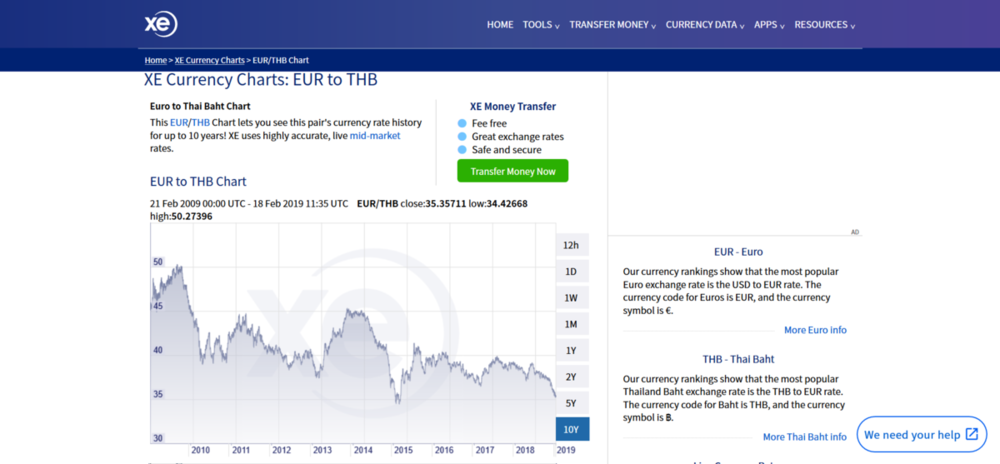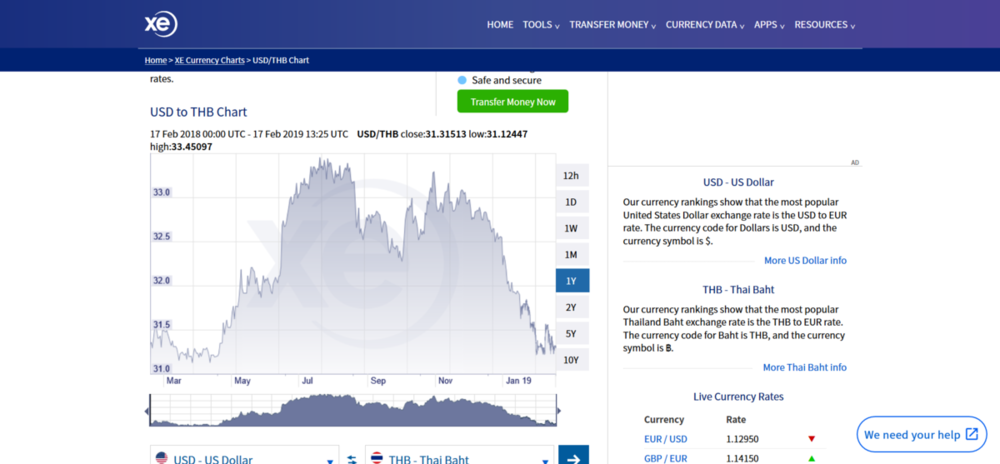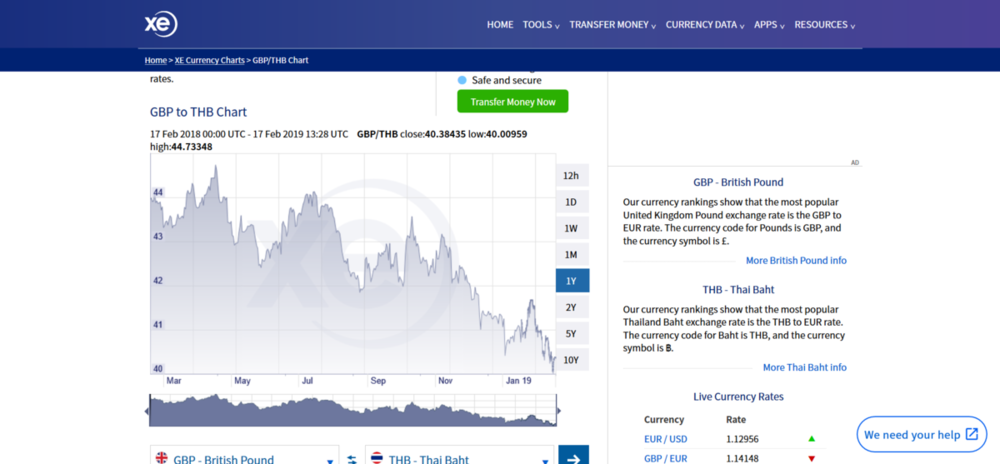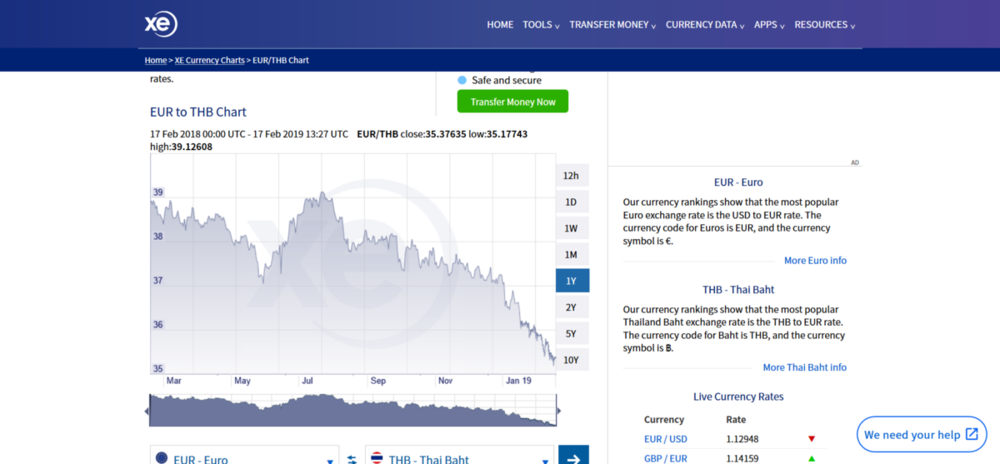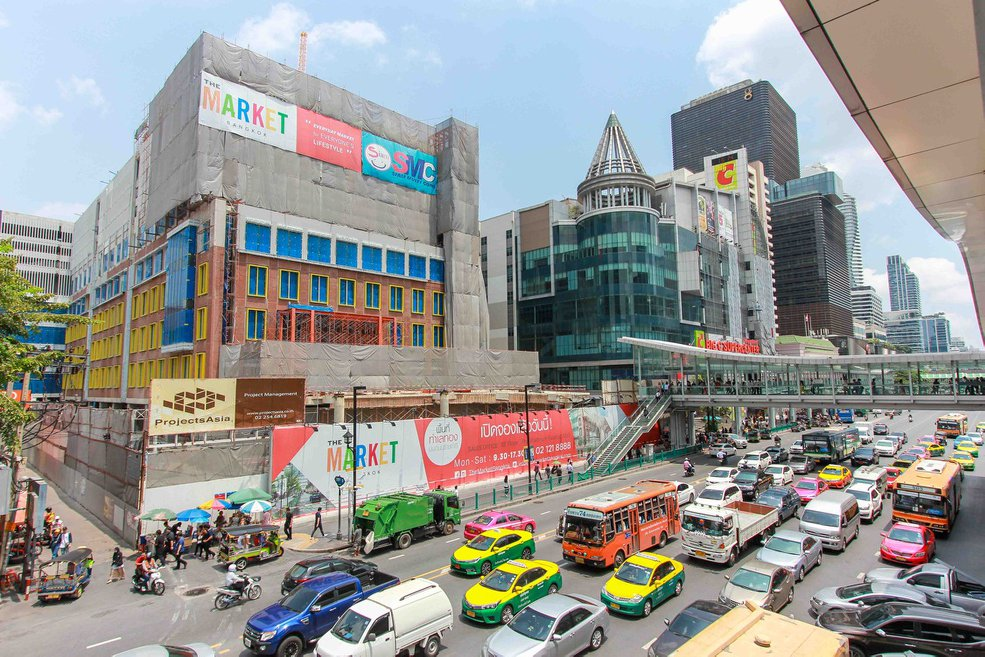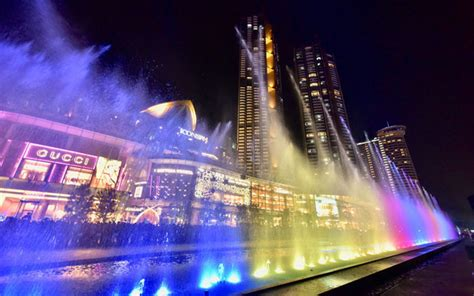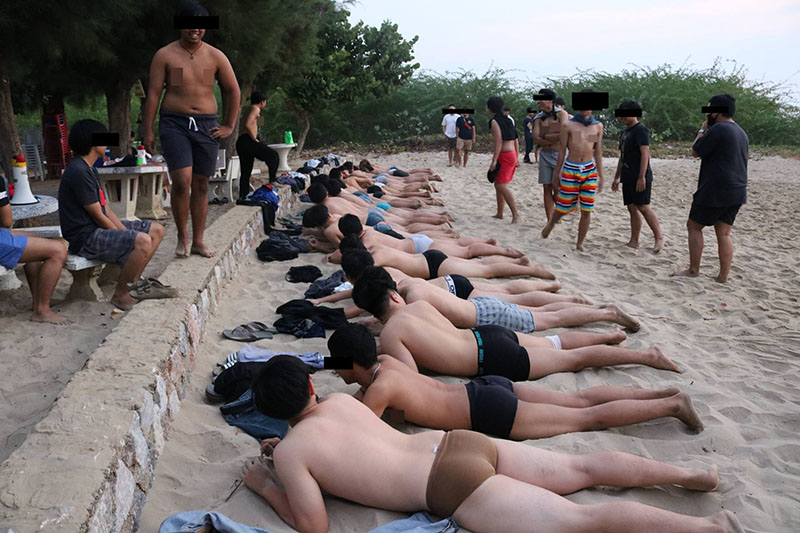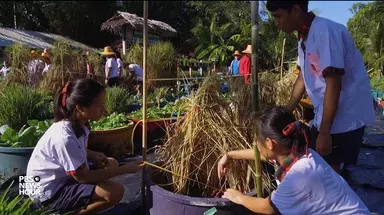
reader
Members-
Posts
9,025 -
Joined
-
Last visited
-
Days Won
240
Content Type
Profiles
Forums
Events
Everything posted by reader
-
For those who’ve walked the streets of Hanoi and been intrigued by its history, this CNN summit set up piece may enlighten and entertain. Features interactive split screen scenes of popular sites from early 90’s to the present. https://edition.cnn.com/2019/02/26/photos/hanoi-summit-changes-intl/index.html
-
No. They stopped to let the horses use the toilet every few hours.
-
Was invited to visit a regular’s room in Bangkok. It was the typical cube with petitioned off toilet area. It lacked a window (as do some of the newer rooms at Raya, btw) but had a ventilation duct connection. Although it initially struck me, a westerner, on the austere side, he was happy with it. None of his walls were exposed to the sun so it didn’t get as hot as the rooms with exterior walls. And he said it was relatively quiet for the same reason. He was sharing it with one other guy along with the 3,000 bht monthly rent (plus electric and water fees).
-
I don’t believe DivineMadman intended this to be a list of the best gay male-to-male shops in Bangkok. Instead it’s just what the title implies: information about a bunch of massage shops. And he took the effort to arrange it in logical order. And it’s just that. He relates his experiences and encourages others to do the same. Information helps us pick and choose but isn’t a substitute for actually going out there and trying it ourselves. Since every massage experience is a unique activity between the parties involved, variation in outcomes is inevitable. But if we dither and fret over every decision, we begin to preclude spontaneity. What distinguishes this thread is that it’s started by an established member who has proven experience in the subject. This, to me, is much more valueable than information gleaned from annonymous sources on commercial sites. I simply wouldn’t trust the latter.
-
Over the 16+ years now of bkk visits, have stayed at hotels, condos, serviced apartments from both ends of the spectrum and everything in between. Never had a guy complain about the low end places and had some rave about the high end spots. The latter prompted some to linger longer (a few even asked to stay the night with no request to up fee). As I got closer to retirement, the Dusit Thani became my splurge and always tried to fit in a few days there per trip. I sorely miss it as do some regulars. For a newbie or a veteran, it’s tough to go wrong with Raya. Big, comfortable bed, good WiFi, plentiful breakfast and as others have noted, no problem whatsoever with guests. Not to mention the location. Thankfully the offerings in Silom area are many and varied to meet all tastes and budgets. Just enjoy the hell out of your time there. You earned it.
-
Impossible! TIT.....lol
-
Actually, I like--hope--to believe that we'll see a reversal in the baht's strength later this year. Consider this excerpt from the article above: Despite leaving rates unchanged at 1.75% at the latest meeting, two policy members of the Monetary Policy Committee voted for a 25 basis point increase, signaling a future rate hike remains a possibility, and further bolstering the relative attractiveness of the baht. It disregards the fact that Thailand's economy is primarily based on what it exports. Raise the value of the baht by hiking rates, you inevitability hurt exports because other countries will be able to offer goods at lower prices. A glance at the 10-year EURO vs THB chart suggests that we're nearing the top of the baht's strength range over the previous decade.
-
From Bangkok Post (17 Feb.) GDP data, smooth election could fuel baht rally The baht is looking to repeat its performance as one of Asia’s best currencies last year. Monday’s growth data will shed light on a key pillar of its recent strength and may help it stay in pole position at least through the first quarter. After being beaten by only the yen in 2018, the Thai currency has outshone all its regional peers so far in 2019, rising by 4% against the dollar. A robust domestic economy has helped it outperform both the won and Taiwanese dollar, which also have the benefit of a current-account surplus. “The baht’s outperformance is attributable to the real strength of the nation’s fundamentals, including the current-account surplus,” said Hironori Sannami, an emerging-market currency trader at Mizuho Bank in Tokyo. “That also includes the fact that it is less susceptible to the US-China trade war relative to other surplus economies like South Korea and Taiwan.” Thailand is also less vulnerable to a downturn in the technology sector unlike South Korea and Taiwan, increasing the attractiveness of the baht, the analyst added. The tourism sector, by one measure worth about a fifth of the economy, is also recovering, noted Frances Cheung, head of Asia macro strategy at Westpac Banking Corp in Singapore. Data due Monday is expected to show the economy grew 3.6% on an annual basis in the fourth quarter, its 12th consecutive quarter of above 3% growth. The Bank of Thailand said in its Feb 6 policy statement that the economy should continue gaining traction even though external demand might slow. In fact, the health of the economy was one reason the Bank of Thailand has kept a hawkish tone, unlike many of its increasingly dovish global peers. Despite leaving rates unchanged at 1.75% at the latest meeting, two policy members of the Monetary Policy Committee voted for a 25 basis point increase, signaling a future rate hike remains a possibility, and further bolstering the relative attractiveness of the baht. Continues at https://www.bangkokpost.com/business/finance/1630510/gdp-data-smooth-election-could-fuel-baht-rally --------------------------------------------------------------------------------- Cross rates from XE currency (17 Feb.)
-
From NPR - US (16 Feb.) NPR's Scott Simon speaks with author Pitchaya Sudbanthad about his novel Bangkok Wakes to Rain. The book threads the history of Thailand with the modern world. Listen to the interview: https://www.npr.org/2019/02/16/695420288/pitchaya-sudbanthad-on-bangkok-wakes-to-rain
-
From Bangkok Post (15 Feb.) Vietnamese airlines get access to US for first time WASHINGTON: Vietnamese airlines will be able to fly to the United States and codeshare with American carriers after the US Federal Aviation Administration declared the country complies with international safety standards. The US aviation safety agency said in a statement late on Thursday that it was awarding Vietnam a “Category 1” rating, two weeks after Reuters reported the decision was expected. “It’s recognition by a very developed aviation authority which requires a very high standard of safety and security,” Vietnamese Deputy Transport Minister Nguyen Ngoc Dong told Reuters on Friday. There are currently no non-stop flights between Vietnam and the United States, despite a large market catering to tourism and visits by friends and relatives. Vietnam Airlines, Bamboo Airways and VietJet Aviation desire to fly to the United States. Bamboo Airways chairman Trinh Van Quyet said Bamboo was considering destinations such as Seattle, Los Angeles and San Francisco, with the first route to open in late 2020 or early 2021. His airline has ordered 20 Boeing Co 787s for long-haul flights. Capa Centre for Aviation chief analyst Brendan Sobie said the FAA rating was important for Vietnam symbolically and politically. But he said Vietnamese airlines could struggle to make US flights profitable because of the lack of demand from high-paying business travellers. “For Vietnam Airlines, launching routes to the US is our political responsibility as a national airline. Whether or not the route is commercially feasible depends quite a lot on technical issues and aircraft,” the airline said in a statement. Vietnam Airlines said it was in talks with Airbus and Boeing about potential jet purchases for the US route, but the earliest they were expected to arrive was in 2022. In the meantime its existing codeshares with Delta Air Lines could be expanded after the rating. Budget carrier VietJet said it plans to purchase wide-body jets capable of non-stop US flights and believes its experience in keeping costs down will give it an effective business model. “We plan to open routes to cities with Vietnamese communities living in the United States such as in California, serving the large travelling and commercial demand from customers,” VietJet’s vice president To Viet Thang said in a statement. The FAA last year sent a team to Vietnam to conduct a safety assessment. Vietnam’s rapidly growing aviation market saw traffic increase 16% on average each year from 2010 to 2017, government data shows. https://www.bangkokpost.com/news/transport/1629850/vietnamese-airlines-finally-get-access-to-us
-
With all the gloom and doom news about impending bar closings, it's heartening to read about additions to the massage scene. Capitalism defies the headlines of the moment and that can only bode well for Thailand. I sort of like walls that fall short of the ceiling. I find the sounds from adjacent rooms satisfy the aural voyeur in me.
-
From CNBC (14 Feb.) Airbus set to scrap production of the world's largest airliner In a statement published on Thursday, Airbus said the last A380 will be delivered in 2021. The decision comes after Emirates — the world's largest A380 customer — decided to cut back its orders of the iconic aircraft and order a total of 70 of the smaller A350 and A330neo models instead. Emirates Airline said it would continue to use Airbus' flagship aircraft well into the 2030s. Europe's Airbus announced plans to scrap production of the world's largest airliner on Thursday, abandoning its A380 superjumbo program in favor of smaller, more nimble jets. In a statement published on Thursday, Airbus said the last A380 will be delivered in 2021. The decision comes after Emirates — the largest A380 customer — decided to cut back its orders of the iconic aircraft and order a total of 70 of the smaller A350 and A330neo models instead. "As a result of this decision we have no substantial A380 backlog and hence no basis to sustain production, despite all our sales efforts with other airlines in recent years. This leads to the end of A380 deliveries in 2021," Airbus CEO Tom Enders said in a statement on Thursday. "The consequences of this decision are largely embedded in our 2018 full year results," Enders said. Airbus said it would start discussions with unions in the coming weeks regarding the 3,000 to 3,500 jobs potentially affected by the news. https://www.cnbc.com/2019/02/14/a380-airbus-set-to-scrap-production-of-the-worlds-largest-airliner.html
-
The period following Chinese New Year usually sees a temporary dip in tourism.
-
From Khaosod English (13 Feb.) BANGKOK — CentralWorld. Central Chidlom. Gaysorn Village. In case it lacked shopping opportunities, Ratchadamri Road is adding another mall tomorrow. After several months of delay, The Market Bangkok has set its official opening for Thursday, which just happens to be Valentine’s Day. Owned by The Platinum Group, the six-story, mixed-use project sits on 21 rai and cost 9 billion baht to build. It includes two Marriott-owned hotels – Fairfield and Moxy Hotel Bangkok Ratchaprasong. The Market Bangkok shopping mall features more than 1,200 shops selling food, drinks, clothing and more. It sells itself as “Bangkok New Dream.” The Market Bangkok is located on Ratchadamri Road next to Big C Ratchadamri. It can be reached via skywalk from BTS Chit Lom. Continues at http://www.khaosodenglish.com/featured/2019/02/13/ratchaprasongs-newest-mall-the-market-opens-on-v-day/
-
From Coconuts Bangkok The 400 meter long fountain is the longest in Southeast Asia. It’s situated on ICONSIAM’s River Park, which is comprised of 10,000 sqm of scenic park area on the banks of the Chao Phraya River. Continues with photos https://coconuts.co/bangkok/lifestyle/longest-fountain-southeast-asia-just-unveiled-iconsiam-splendid/
-
And judging by this disclosure from MIT, we're making it easy for them. From CNBC (12 Feb.) More than 26 million people shared their DNA with ancestry firms, allowing researchers to trace relationships between virtually all Americans: MIT More than 26 million people have taken a consumer DNA test so far. The MIT Technology Review predicts that number will rise to 100 million in 24 months. Last year's sales alone equaled that of 2012 through 2017 combined. More than 26 million people — more people than in all of Australia — have shared their DNA with one of the four leading ancestry and health databases, allowing researchers to extrapolate data on virtually all Americans and raising some serious privacy concerns, according to the MIT Technology Review. Consumers purchased the same number of at-home DNA tests in 2018 as in all previous years since 2012 combined, according to the publication. If the trend continues, the companies could house the genetic information of over 100 million people — about a third of the U.S. population — within two years. "For consumers, the tests — which cost as little as $59 — offer entertainment, clues to ancestry, and a chance of discovering family secrets, such as siblings you didn't know about," according to MIT Technology Review. "But the consequences for privacy go well beyond that. As these databases grow, they have made it possible to trace the relationships between nearly all Americans, including those who never purchased a test." Ancestry and 23andMe are the two main players in the genetic and ancestry testing business, with Ancestry collecting 14 million DNA samples as of Jan. 1 and 23andMe collecting 9 million samples. The other companies reported a combined total of 3.5 million samples collected. "We have noticed an increasing number of people becoming interested in genetic testing," said Jon Ward, vice president of consumer marketing and acquisition at 23andMe. "Consumers are interested in discovering a range of information about themselves, from learning more of their background and where their ancestors came from, to identifying lost relatives or learning more about their health." MIT said the four biggest ancestry companies have previously promised they wouldn't let police search their databases without a warrant. But Family Tree DNA recently changed its policy and allowed the FBI to upload DNA samples from crime scenes, according to the MIT publication. "The unilateral change in policy — which users weren't alerted to — is troubling because it means that our DNA, just like our posts on social media or our location data, is at the mercy of user agreements none of us have any control over or even bother to read," the MIT publication said. https://www.cnbc.com/2019/02/12/privacy-concerns-rise-as-26-million-share-dna-with-ancestry-firms.html Edit
-
Although costs are the more obvious factor in the scaling down of the expansion project, it's possible that other aspects are in play. Two bits of financial news yesterday added to the growing evidence of the slowing of growth worldwide. Vanguard, one of the most respected investment houses in the US (and where the idea of index investing was popularized), predicted a 5% annual return on equity investments over the next decade, down significantly from earlier expectations. And growth in the Chinese economy was walked back yet again. This begs the question of whether developers are beginning to acknowledge that this may result in a leveling off of what has been phenomenal growth in the air travel industry. Although orders for new aircraft has been robust in recent years, buyers are chasing more fuel efficient equipment to replace existing stock. The trend is away from the largest aircraft (A380 and Boeing 747). Delta just last week began flying the new--and smaller--Airbus A220 (109 seats). The same aircraft is already in use by Korean Air and Jet Blue is expected to soon sign on. Japan's Mitsubishi and China's COMAC are also entering the lucrative narrow-body market. None of this suggests a reversal in growth patterns in air travel. However, it could be that a modest decline in the rate of growth is in the cards. The interior of Delta's new A220.
-
We probably won't find them among the models at Moonlight but they represent what your average Thai body looks like. I don't have any complaints. Can't help wondering if the Thai guys we meet don't think to themselves, "doesn't say much for farangs."
-
I'm sure the same thought occurs to most Thais when they see farangs on the beach.
-
From Khaosod English (11 Feb.) PHETCHABURI — Freshmen were stripped to their underwear and forced to stand shoulder to shoulder as early-morning waves crashed around them. Some were made to bend over in front of their friends while others had to lick ketchup off their friends’ chests and nipples. According to Monday reports by the Anti Sotus anti-hazing Facebook page, these were some of the degrading activities held Feb. 1 to Feb. 3 at an unknown beach during a freshmen hazing initiation for Mechanical and Aerospace Engineering students from King Mongkut’s University of Technology North Bangkok. “All your upperclassmen are participating to make this activity for you. You won’t regret it if you go, the activity is super fun. Let’s all show up,” reads a screenshot posted by the Facebook page that upperclassmen wrote to freshmen. Activists against SOTUS hazing – which stands for the creed of Seniority, Order, Tradition, Unity and Spirit – say that catching the events depend on tips, since upperclassmen hosts try to keep them secret. “Sotus activities this year have been more secretive. They’re more stringent with photos. It’s harder to get evidence,” Kollawach Doklumjiak, an activist with the Anti Sotus page said. Kollawach confirmed that the leaked photos were from a participant in the camp who alerted the page. The activities – some of obscene nature – also alternated between singing chants, rolling in the sand and sea, and lying on the ground while pointing their feet towards the sky. Scrawled in red across upperclassmen’s chests were the initials “ME”: short for mechanical engineering, the name of their program. “King Mongkut students should have more brains than this. You can hold garbage-picking activities on the beach, or even just hang out and have fun there and bond, instead of doing brain cell-destroying activities such as these,” Facebook user Sirasak Fitty Srichan wrote. An Anti Sotus activist who asked for anonymity while the investigation of the recent event is ongoing, said he believes the camp was set up by upperclassmen rather than the university, and that this wasn’t an isolated incident – just one of which they had proof. “People from this school are taught to keep stuff such as this from leaking out of the school, and to do what their roon p said. But there’s lots more of it happening,” the activist said. Extreme SOTUS activities can prove to be unwelcoming for freshmen. For the upcoming March 24 election, millions of young voters will cast their ballots for the first time. Some parties have weighed in on whether SOTUS should be abolished, controlled, or left alone if they’re elected. Continues with candid photos http://www.khaosodenglish.com/culture/net/2019/02/11/freshmen-stripped-to-undies-in-sotus-beach-trip/
-
From CNBC (11 Feb.) Chinese investors are spending billions on Thai property despite a turbulent political scene Thailand's popularity among Chinese property investors has soared despite a 2014 military coup and uncertainty about upcoming elections. According to recent data from online Chinese real estate portal Juwai.com, Thailand was the most popular country in the world when it comes to inquiries from potential real estate buyers in 2018 — climbing up from the sixth spot in 2016. Thailand was the fourth-most-popular country for Chinese property investment in 2018, according to Juwai, with $2.3 billion coming in from Chinese sources. Chinese investors have continued pouring their money into Thailand's property sector even as the kingdom barrels toward an uncertain national election. That underscores the Southeast Asian nation's enduring popularity with the Chinese — tourists from Asia's top economy have for years seen Thailand as a top spot for holidays. According to recent data from online Chinese real estate portal Juwai.com, Thailand was its most popular country when it comes to inquiries from potential real estate buyers in 2018 — climbing up from the sixth spot in 2016. Thailand will hold general elections on March 24, but Juwai CEO Carrie Law said the company hasn't seen "a link between the Thai election and Chinese property buying." "While the election is momentous for Thailand, most of the buyers we work with are unconcerned about the outcome," she told CNBC. Thailand's economy has been powering ahead since its 2014 coup, reaching 3.9 percent GDP growth in 2017. That was its best in five years, but that growth is expected to slow a bit this year due to weaker global growth, the World Bank projected. Even though that recent coup was the second in less than a decade, the political upheaval did little to cool Thailand's huge property increases. In fact, Sansiri — one of Thailand's biggest developers — set up its international business unit in 2014 after seeing growing interest from foreign buyers, said Nanmanas Jiwattanakul, the company's assistant executive vice president of international business development. Chinese buyers make up 70 percent of Sansiri's international sales, she said. Foreign buyers have not been deterred by the country's political limbo over the last five years as the Thai economy, business processes and policies have showed consistency and resilience despite numerous government changes, Nanmanas added. Thai property prices have roughly doubled in the last decade, so investors see the country as good place to grow their wealth, Nanmanas said. Still, she added, it's more than just financial calculus leading people to purchase property in Thailand, they're also buying holiday or retirement homes. Thailand was the fourth-most-popular country for Chinese property investment in 2018, according to Juwai. With $2.3 billion coming in from Chinese sources, the Southeast Asian nation ranked behind only the U.S. ($30 billion), Hong Kong ($16 billion) and Australia ($14 billion.) https://www.cnbc.com/2019/02/11/thailand-property-chinese-buying-interest-has-surged-in-recent-years.html
-
Excerpted from South China Morning Post (10 Feb.) Andrey Korneev (left) and Nazar Moroz at MixFight Pattaya. Photo: Claudia Hinterseer It’s hard to imagine a building less in sync with its surroundings. In the crooked soi s (side-streets) of northern Pattaya, cluttered with motorbike taxis encircling steaming street-food stalls, All Saints Russian Orthodox Church may as well have come from outer space. Yet here it stands, in the middle of this quintessentially Thai streetscape – its bright white walls and bronze onion domes gleaming proudly in the ferocious afternoon sun. This dissonance is even more pronounced inside, where the temperature seems to drop, silence descends and the bleached white light of the outside world is replaced by the flickering of dozens of candles. Murals depicting the gospels adorn the ceilings and walls, flanked by a mixture of Thai and Cyrillic script. Most visit briefly but thousands have stayed, buying homes and starting businesses. There were 50,000 Russians on long-term visas in Pattaya in 2013, excluding Russian speakers from former Soviet states such as Belarus, Ukraine and Estonia. Their presence is evident on the city’s streets, in real estate agencies and restaurants featuring signs and menus in Russian. Pattaya’s Russian-speaking community was thrust into the spotlight for all the wrong reasons last year, however, after Alex Kirillov and Anastasia Vashukevich were arrested for running “sex seminars” in the city. Detained last February during a session in a hotel room that was reportedly attended by about 40 Russian tourists, they were charged with offences related to prostitution. The pair were deported in December and banned from the country. As if Vashukevich’s sobriquet of “Belarusian sex trainer” wasn’t salacious enough, she also claimed to have inside information about how Russian operatives helped swing 2016’s US election in Donald Trump’s favour. Her claims remain unsubstantiated, but the case brought a renewed focus on Pattaya’s seedy underbelly. Plenty of visitors come to explore the red light district around Walking Street, although the city also draws a mix of retirees, families and singles with no interest in that side of Pattaya. The influx of visitors, and those who have settled, has made this the most Russian of cities in Asia. They chafe at the stereotype of their adopted city as a bottomless barrel of sex and sleaze. It is their home, and they are ready to defend it. Continues with pics and videos https://www.scmp.com/week-asia/society/article/2185341/pattaya-love-forget-sex-trainers-meet-real-russians-thailands
-
From CNN Travel (7 Feb.) A display of mooncakes for sale on Bangkok's Pracha Rat Bamphen Road. his neighborhood lacks the frothy, bustling, gigantic sprawl and saturated neon of the capital's frenetic, 200-year-old Chinatown on Yaowarat Road along the Chao Phraya River, five miles (eight kilometers) away. It's also missing Chinese architecture, such as Yaowarat's temples, shrines, dragon latticework and antique buildings dating back to the late 1700s, when Bangkok's earliest Chinese merchants and settlers moved into the area. Instead, Pracha Rat Bamphen's small, unique lures include cafe-sized restaurants offering classic dishes from China's Yunnan and Sichuan provinces, which are difficult to find in the city's traditional Chinatown. From Yunnan to Bangkok In China, during the 1960s and '70s, the communist regime of Chairman Mao Zedong exiled some intellectuals and other rivals south to Yunnan so they couldn't influence Beijing's political struggles. These exiles joined Yunnan's indigenous minority ethnic groups in the mountainous province bordering Myanmar (Burma) and Laos, and together influenced the creation of recipes different from elsewhere in China. Some of those now elderly Chinese, their offspring and others recently began traveling from Yunnan to live in or visit Bangkok, and now often reside or eat along Pracha Rat Bamphen Road instead of Chinatown. Other Chinese immigrants are moving to this road from Chengdu city and elsewhere in central Sichuan province, famous for its fiery, spiced meals. Continues with pics https://www.cnn.com/travel/article/bangkok-new-chinatown/index.html
-
Certainly agree about the upgrades. The worst one I experienced was on an iPad that disabled both cameras. I want to put in a rave for the virus protection that I purchased when I got my current PC. "ESET" I find is superior and more bug free than the others I've used over time. It has stopped occasional malware attacks and warns about questionable websites. It's been around for about 30 years but has a low profile. ESET comes with a mode especially dedicated to banking and financial websites.
-
From The News Hour - US PBS (6 Feb.) How this Thai educational movement empowers rural students More and more in Thailand, rural students learn in traditional classrooms, but with an emphasis on hands-on activities. The idea is to empower young villagers to bring economic development to their communities, as well as learn leadership, empathy and compassion. Special correspondent Fred de Sam Lazaro returns to Thailand to talk with the man leading the effort there. It's not something you typically see in a Thai public school. There's dancing, games and paper-making. And the teachers on this day were visiting students from a unique nearby high school. It's part of a new approach the government is seeking to expand across Thailand. It's begun with an initial 180 schools, and is based on the nonprofit 7-12 grade Mechai Bamboo School named after its founder, Mechai Viravaidya. The Bamboo School was started nine years ago in rural Eastern Thailand as a way to inspire young villagers to bring economic development to their communities. On a typical day, students might be performing for patients at a nearby hospital. That's after handing out meals they had prepared at the school kitchen using produce grown in the school garden. Students do learn in traditional classrooms, but the emphasis is hands-on. The Bamboo School was started nine years ago in rural Eastern Thailand as a way to inspire young villagers to bring economic development to their communities. On a typical day, students might be performing for patients at a nearby hospital. That's after handing out meals they had prepared at the school kitchen using produce grown in the school garden. Students do learn in traditional classrooms, but the emphasis is hands-on. Continues with video https://www.pbs.org/newshour/show/how-this-thai-educational-movement-empowers-rural-students


